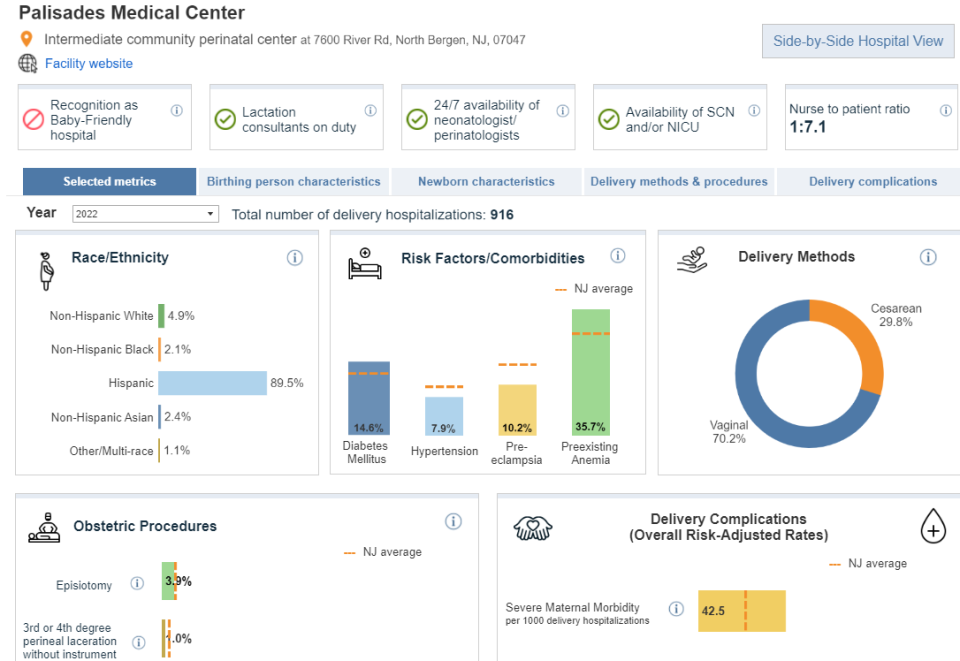Which NJ hospitals are the best for giving birth? This new data tool can help
A redesigned online tool unveiled Tuesday shows how dozens of New Jersey's hospitals fare on maternal health at a time when the state has improved overall in healthy outcomes but continues to grapple with a large racial disparity when it comes to serious complications.
The "New Jersey Report Card of Hospital Maternity Care" offers dozens of metrics on 49 hospitals based on five years of data, the latest of which comes from 2021 and 2022. Although no grades are given, expecting mothers can compare hospitals side-by-side for everything from caesarean versus vaginal birth to how often labor is induced or epidurals are given.
The tool, created by the New Jersey Department of Health, shows how hospitals compare with statewide averages in several categories, including such post-admission complications as infections, hemorrhaging and morbidity. It also gives general information on each facility, such as the nurse-to-patient ratio and whether there's a neonatal intensive care unit.
Story continues below photo gallery.
The report card is one of many reforms New Jersey has made in recent years as it has tried to curb a rising number of serious maternal complications that placed it near the bottom in the nation despite its being a state ranked high overall in health care, income levels and education.
A report last year showed that New Jersey has made strides, with the number of complications and the rate of caesarean sections down.
Transportation: More federal aid lowers cost of Gateway rail tunnel project under Hudson for NJ, NY
Still a wide racial gap in NJ for maternity complications
But there is still a wide racial gap, the report also showed. The rate of Black women with chronic hypertension, pregnancy-related hypertension and preeclampsia in 2021 was 7.4 per 100 births, compared with 5.1 for white women.
The rate in 2021 of Black women who had obstetric hemorrhage was 9.9, compared with 6.3 for white women.

A study published last year in JAMA, the Journal of the American Medical Association, showed that the maternal mortality rate among Black women increased to 110 per 100,000 births between 2010 and 2019, compared with 54.5 between 1999 and 2009.
The data also gives an insight into New Jersey's ever-changing demographics. Minority women represented 55% of all births in 2022, compared with 46% in 2000, the Health Department reported.
First lady Tammy Murphy has spearheaded efforts to improve maternal health. "We still have a long way to go to remedy our disparities," she said in a statement. The report card "moves us in the right direction to ensure accountability, transparency and the best possible care for our moms and babies."
This article originally appeared on NorthJersey.com: Find the best hospitals in NJ to give birth in with this tool

